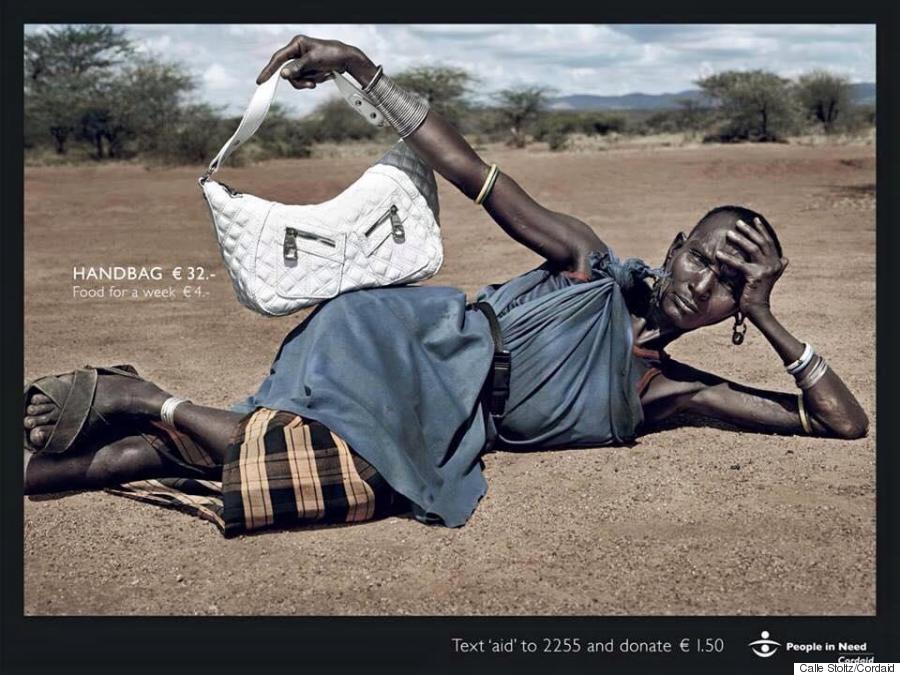On first glance, the images look like they’ve been lifted from a striking Vogue spread.
But upon closer inspection, it becomes more clear that these Kenyan “models” have probably never flipped through the high-fashion magazine’s glossy pages.

Back in 2007, Swedish advertising and fashion photographer Calle Stoltz partnered with creative group Saatchi & Saatchi to produce a compelling campaign highlighting the struggles Samburu people, a nomadic tribe, face. Each "model" posed holding a luxury good and was set against a stark and arid backdrop.
The goal was to show how the money consumers flippantly spend on disposable items can have an immeasurable impact on people living in disaster areas.
“Essentially we confronted people with their consumer behavior,” Cordaid, the nonprofit group the initiative supported, said in a statement.

“Small Change, Big Difference” was solely a print campaign, displayed on billboards in shopping centers, and printed on coasters and cards that were distributed at bars and restaurants. But it’s now experiencing something of an online revival after the images were recently shared again on Twitter and Facebook and were picked up by a number of global news sites.

More than 250,000 members of the tribal community live in a remote area of Northern Kenya, an area where such as essentials as water are challenging to come by, according to the Samburu Project, a group that provides clean drinking water to the Samburu people in Kenya.
The women are typically tasked with fetching water for their families and spend up to 12 hours a day doing so, often only to come back empty handed. If they're "lucky" enough to find water, it's often contaminated -- which can lead to diarrhea, a leading cause of death in the community.

To help these communities survive, Cordaid, and its local partners, work on finding sustainable solutions during the drought periods. Such systems include building shallow wells and ponds so that they can save water during the rainy season, according to the organization's website.
The group hopes that the campaign will continue to inspire supporters to reevaluate the value of the money they spend, and how setting aside just a few dollars can make a difference.
"The strength of the campaign lies in the fact that it almost ridicules wealth inequality, a serious issue that’s still with us today," the aid organization said in a statement.
Find out more about Cordaid and how you can get involved here.
To take action on pressing poverty issues, check out the Global Citizen's widget below.


